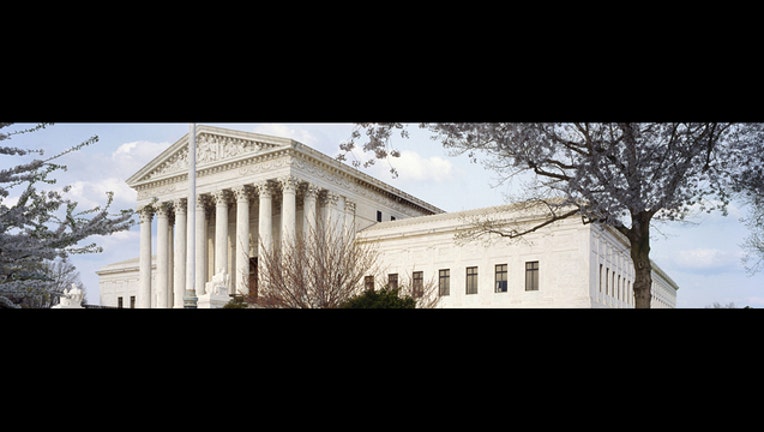Supreme Court refuses to block Texas voter identification law

Supreme Court of the United States
WASHINGTON (AP) - The Supreme Court on Friday rejected an emergency appeal to stop Texas from enforcing its challenged voter ID law. But the court said it could revisit the issue as the November elections approach.
The law has been in effect for recent elections, even after a trial judge struck it down in 2014 and an appellate panel found last year that the law had a discriminatory effect on minority voters.
The challengers in the ongoing lawsuit argue there is no reason to allow the requirement to show picture identification at the polls to remain in place.
But justices rejected the plea in a brief order Friday. The full New Orleans-based appeals court will hold a new hearing on the Texas law in May.
The high court said that it is aware of "the time constraints the parties confront in light of the scheduled elections." If the full appeals court has not issued a ruling by July 20, the court said, it would entertain a renewed emergency appeal over the voter ID law.
Friday's order was the second time the justices have refused to block the voter ID law in Texas. In 2014, the court allowed the law to be used in the then-imminent general election. The order two years ago was issued two days before the start of early voter in Texas and without explanation, but appeared to be based on the court's view that changing the rules so close to an election would be confusing.
Three justices dissented in 2014: Ruth Bader Ginsburg, Elena Kagan and Sonia Sotomayor. Ginsburg, writing for the dissenters, said the ID requirement created the potential for "racially discriminatory voter disenfranchisement."
Other Republican-controlled states, including Wisconsin and North Carolina, have passed similar voter ID measures that also are being fought in the courts. But the Texas law is widely viewed as one of the nation's toughest. It requires one of seven forms of approved identification, but unlike other states with voter ID restrictions, Texas doesn't recognize university IDs from college students. It does, however, accept concealed handgun licenses as proof of identity.
Free voting IDs are available from the state, but opponents have said getting those cards still puts underlying financial costs on voters, such as paying for birth certificate copies and travel.
While there have been anecdotal reports of confusion in the Texas elections held while the law is in force, there haven't been widespread issues with people being unable to cast ballots because they lacked proper identification.

